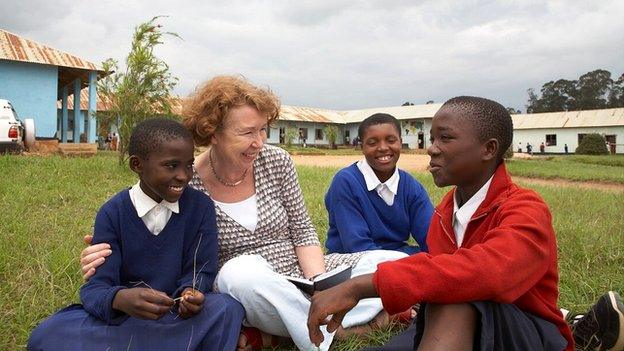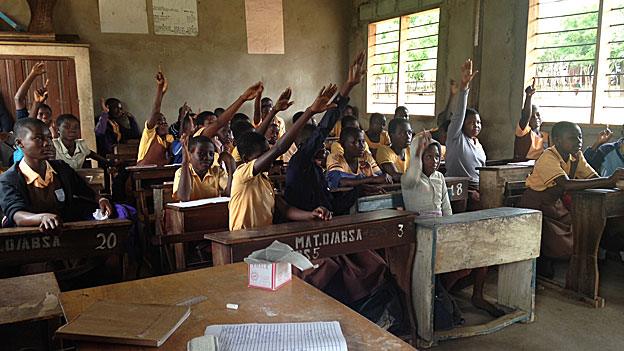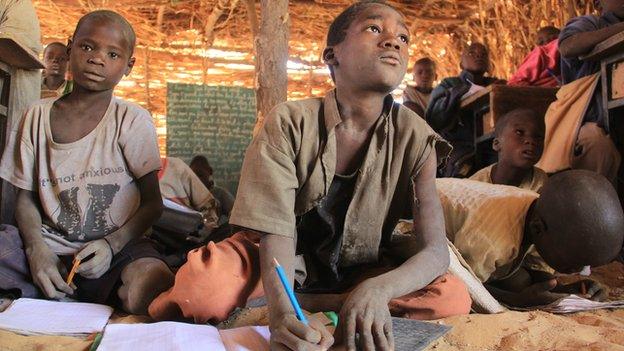UK girls' education campaigner wins global prize
- Published

Ann Cotton has campaigned to improve girls' education as a way of helping rural African communities
The founder of a UK campaign to promote education for girls in Africa has been awarded a major international prize.
Ann Cotton, who launched the Campaign for Female Education (Camfed), has been named as the WISE Prize laureate at an education summit in Qatar.
The project has worked with more than three million children in five countries in sub-Saharan Africa.
The principle behind the charity is that educating girls is the key to tackling poverty and improving health.
Camfed International, which began in 1993, supports girls in rural communities in Ghana, Malawi, Tanzania, Zambia and Zimbabwe.
The campaign, based in Cambridge in the UK, provides bursaries to help girls stay in school, paying school fees or buying text books and uniforms.
Right to education
It draws on research showing that investing in girls' education has substantial long-term benefits for the rest of the community.
Better-educated girls are likely to marry later and have healthier children and rates of HIV/Aids are likely to be lower.
Higher earnings are likely to be invested by women in their families.
But there are still tens of millions of girls without access to any education - and the greatest problems are in sub-Saharan Africa.
The millennium pledges made at the beginning of the century promised a primary school place for all children by 2015 - but the latest figures from the United Nations suggest that it will be another 70 years before this target is reached.
And it is girls in poor rural areas who are most likely to remain excluded from education.
Camfed has worked to support girls from primary school through to secondary school and college.
As well as working to support girls in school, the charity helps with training for teachers and health workers.
Ms Cotton has previously been awarded an OBE and was named the UK's Social Entrepreneur of the Year in 2004.
The annual WISE Prize was created by the Gulf state of Qatar as a kind of Nobel prize for education, recognising innovation and achievement for educational projects.
It is a prize funded by one of the world's wealthiest countries to support projects in some of the poorest.
Previous winners have included Sir Fazle Hasan Abed, founder of the BRAC school project which began providing education for poor families in Bangladesh in the 1970s and expanded to teach more than 120 million people in many of the world's most deprived countries.
Madhav Chavan won the prize for the Pratham charity, which brought affordable education to poor communities across India.
Last year, the prize was won by Vicky Colbert for her work with underprivileged families in Colombia.
Awarding the prize, Sheikha Moza bint Nasser, chair of the Qatar Foundation, said it provided an example of "what is possible".
The annual award was intended to "inspire millions more social entrepreneurs, advocates and education innovators who deliver solutions one child, one village, one town at a time," said Sheikha Moza.
Ms Cotton said that Camfed was committed to helping millions more girls through secondary education, who otherwise would be "robbed of confidence" and control over their own lives because of poverty and a lack of education.
- Published9 July 2014

- Published29 January 2014
